For pro photographers, only the best monitor for photo editing will do. However, even for a keen hobbyist, a great photo monitor is a boon. Photo displays are professionally-calibrated monitors specifically for photo, video and graphic work, and they’re designed to ensure that colors are as accurate as possible when you're working on it with your PC.
While many modern monitors do a good job at displaying images and reproducing colors, they just can't compete with the best monitor for photo editing. On top of offering wider color gamuts, such a monitor delivers great color reproduction, bright, vibrant displays, and enough real estate for multitasking. Typically, newer ‘IPS’ LCD panels will have better color reproduction than their older ‘TN’ counterparts – not to mention, better viewing angles.
Some of the best monitors for photo editing are pricey, and it can be hard to find the best value when you’ve got a limited budget. For your convenience, we listed a variety of choices here, from monitors that might set you back a great deal to the more affordable options.
- Looking to print and store your edits? Check out our best photo book guide.
- These are the best laptops for photo editing
The best monitor for photo editing at a glance
- BenQ SW321C PhotoVue
- Eizo ColorEdge CG318-4K
- Dell UltraSharp UP3216Q
- BenQ PD3200U
- MSI Prestige PS341WU
- BenQ EX3501R
- BenQ GW2270H
- Dell UltraSharp UP3218K
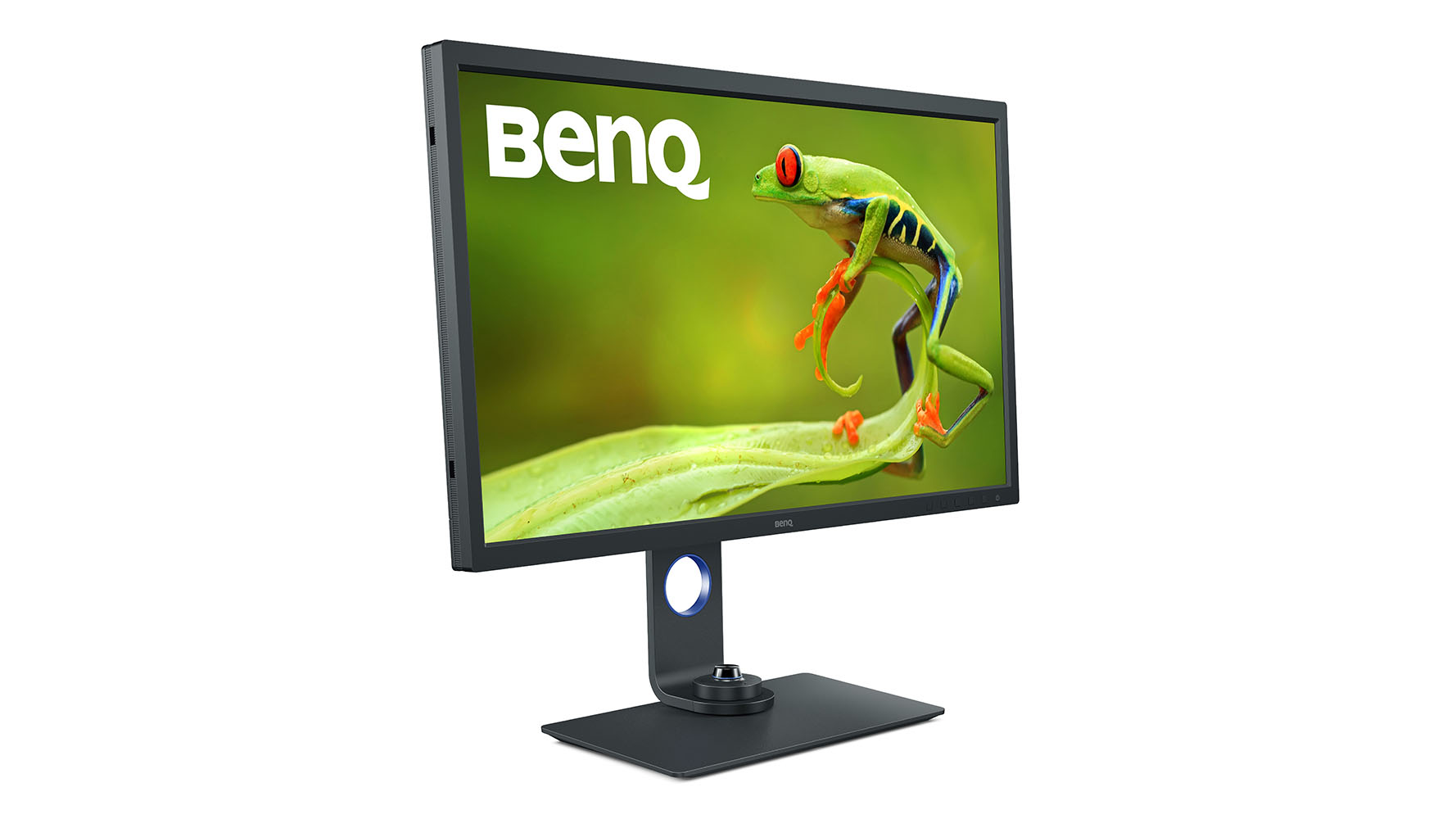
1. BenQ SW321C PhotoVue
Affordable pro-level 4K photo monitor
Screen size: 32-inch | Aspect ratio: 16:9 | Resolution: 3,840 x 2,160 | Brightness: 250 cd/m2 | Response time: 5ms | Viewing angle: 178/178 | Contrast ratio: 1,000:1 | Color support: 99% AdobeRGB, 95% P3, 100% sRGB | Weight: 25.6kg
Pro-level displays are no longer the premium priced, inaccessible purchase they started out to be. At least as far as the BenQ SW321C PhotoVue is concerned. This 32-inch 4K photo monitor is up a step or two in terms of both performance and usability, featuring an incredibly wide color gamut of 99% of the Adobe RGB color space and 95% of DCI-P3. If you’re in the cinematography or photography sphere, that’s exactly what you need. And, that’s on top of all the other features this monitor boasts. This is among the best monitors for photo editing you’ll find, and the best part is you’re getting it for cheaper than all others.
Read the full review: BenQ SW321C PhotoVue
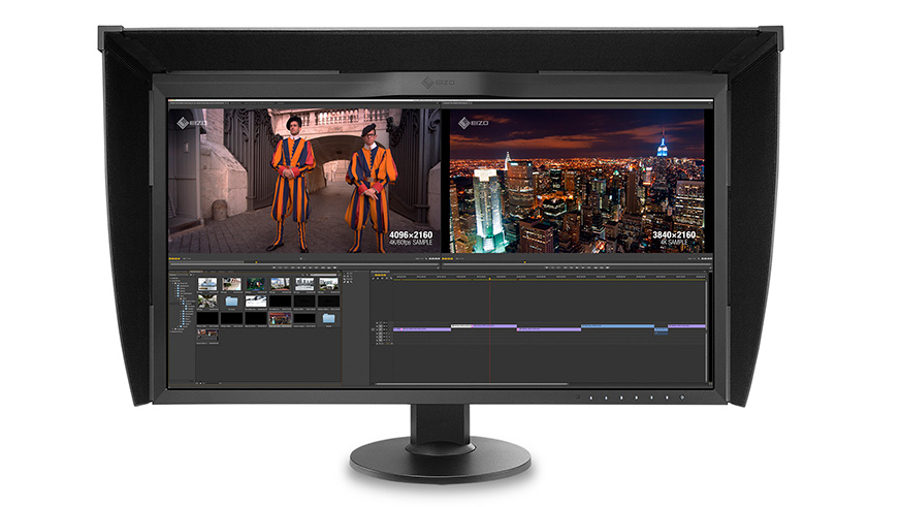
2. Eizo ColorEdge CG318-4K
A brilliant monitor for photo editing
Screen size: 31.3-inch | Resolution: 4096 x 2160 | Refresh rate: 60Hz | Panel technology: IPS | Inputs: 1 x DisplayPort, 1 x Mini DisplayPort, 2 x HDMI, 1 x VGA | USB: 4 x USB 3.0
The 31-inch ColorEdge CG318-4K is our current pick for the best monitor for photo editing. This is mainly down to its color accuracy, which is essential for professional photographers who edit their photos. It features full sRGB coverage, 99% of the Adobe RGB spectrum and 98% DCI-P3. It fully supports 10-bit colour, taken from a 16-bit look-up table.
The CG318-4K has a 4096 x 2160 resolution, compared with the 3840 x 2160 resolution used in other 4K computer displays.
All of these features come together to produce a jaw-dropping image, making your photos really stand out. There's also a built-in calibration tool to constantly keep the colors as accurate as possible.
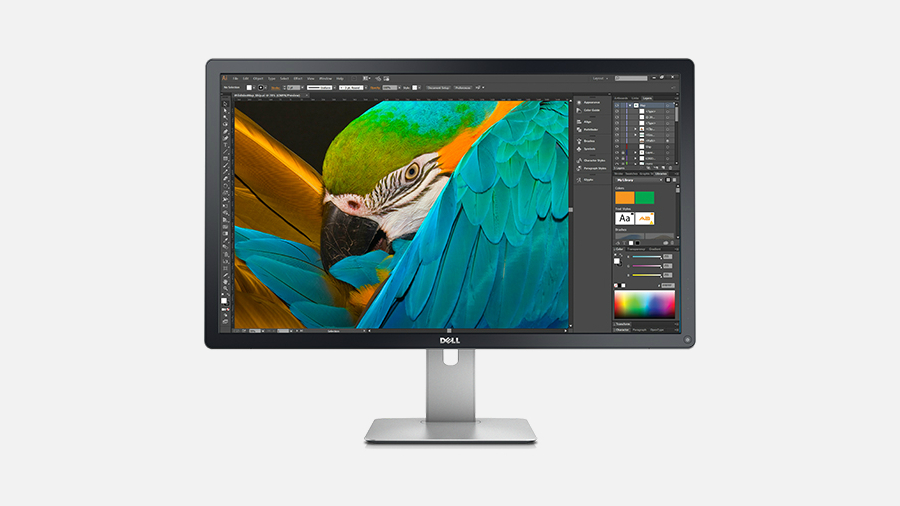
3. Dell UltraSharp UP3216Q
Another brilliant monitor for professional photographers
Screen size: 31.5-inch | Resolution: 3840 x 2160 | Refresh rate: 60Hz | Panel technology: IPS | Inputs: 1 x DisplayPort, 1 x Mini DisplayPort, 1 x HDMI | USB: 4 x USB 3.0
Dell's top-end 31.5-inch 4K display packs in a lot of professional-grade features for superb color accuracy. It is a pricey monitor, however, but then this is a large 4K screen, so you should expect to pay a bit more. It comes with support for the DCI-P3 color spectrum. It has a specification that almost rivals Eizo's monster CG318-4K, as it hits 99% Adobe RGB coverage and 87% DCI-P3, delivering great picture quality.
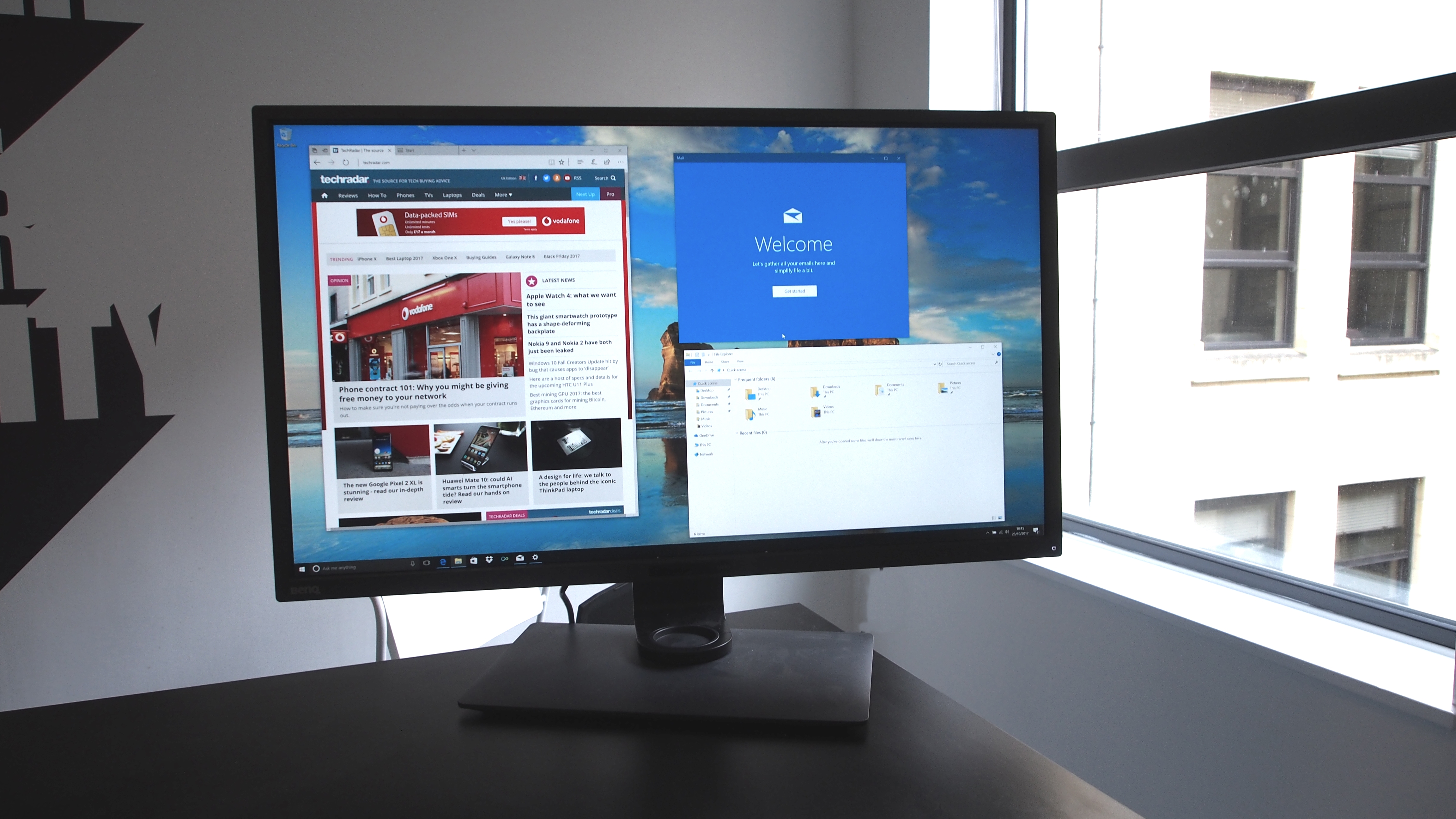
4. BenQ PD3200U
Another stunning 4K monitor
Screen size: 32-inch | Aspect ratio: 16:9 | Resolution: 3,840 x 2,160 | Brightness: 350 cd/m2 | Response time: 4ms | Viewing angle: 178/178 | Contrast ratio: 1,000:1 | Color support: sRGB 100% | Weight: 8.5kg
BenQ has added the PD3200U, which features a massive 32-inch Ultra HD display, to its Designer Monitor range. The PD3200U is best suited for creators. 3D designers, for instance, will be grateful for the inclusion of a CAD/CAM mode, while photographers and photo editors will love in the factory-calibrated color accuracy and Rec. 709 adherence.
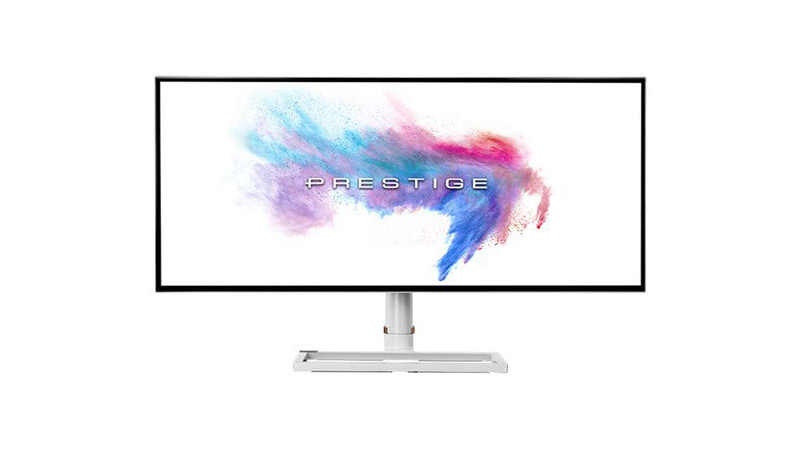
5. MSI Prestige PS341WU
When 4K just doesn't cut it...
USB-C: Yes | Screen size: 34 inches | Resolution: 5,120 x 2,160 | Aspect ratio: 21:9 | HDMI inputs: HDMI 2.0 x 2 | Display ports: DisplayPort v1.4 x 1
If you’re looking for a monitor that’s a cut above the 4K norm, then you’ve got the MSI Prestige PS341WU. Showing up any impeccable 4K monitor is by no means an easy feat, but this monitor does so with the huge 5K2K native resolution (and 21:9 ultrawide aspect ratio) of its luscious 34-inch IPS screen. It doesn’t come cheap, but it does have a great feature set to make up for that, including a Nano IPS panel with DCI-P3 color gamut, HDR support and comprehensive connectivity. All that packed in a beautiful white aesthetic, and you’ve got yourself one of the best monitors for photo editing in 2020.
Read the full review: MSI Prestige PS341WU
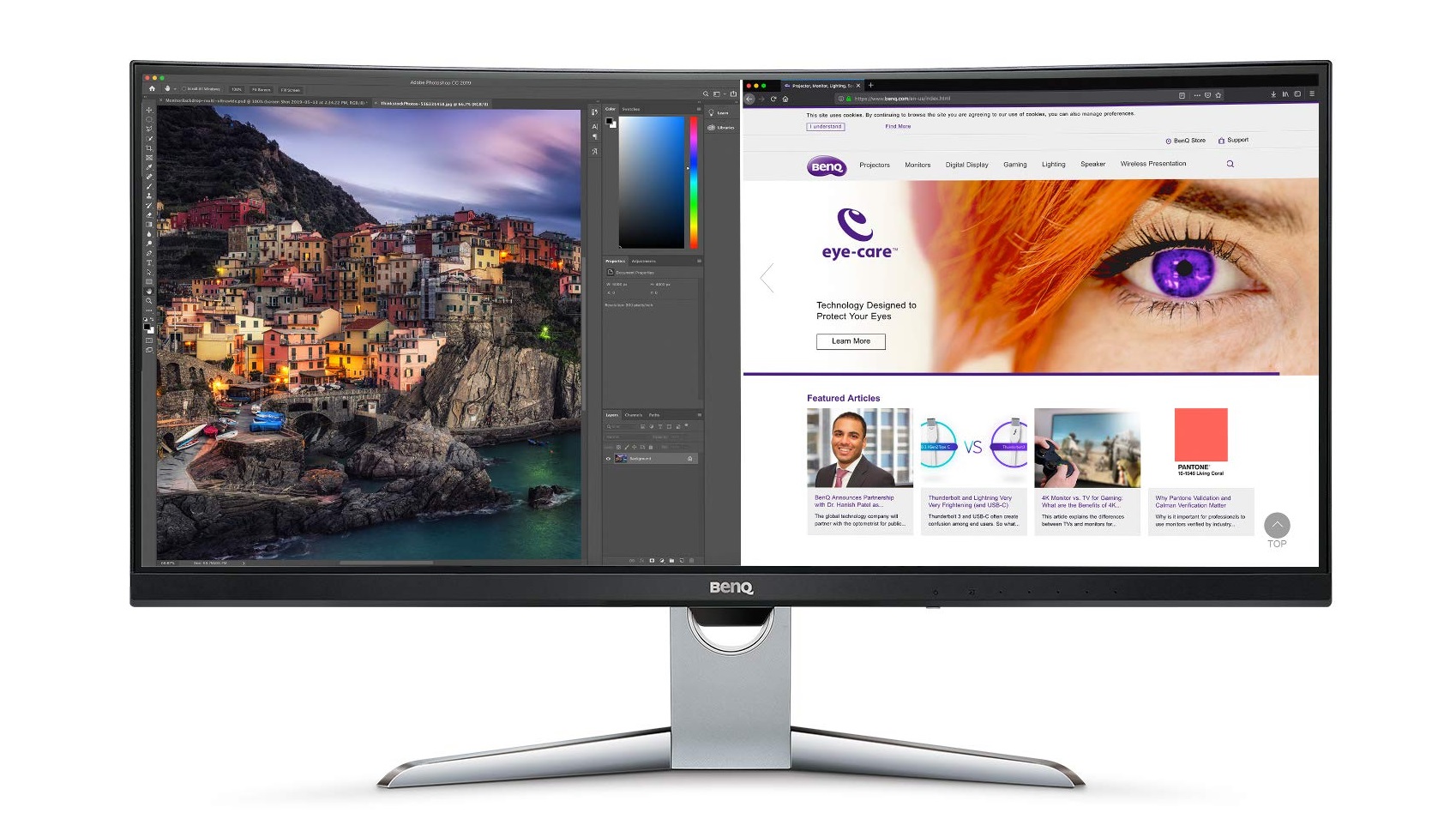
6. BenQ EX3501R
A brilliant ultrawide monitor for photoediting
Screen size: 35-inch | Aspect ratio: 21:9 | Resolution: 3,440 x 1,440 | Brightness: : 300 cd/m2 | Refresh rate: 100Hz | Response time: 4ms | Viewing angle: 178/178 | Contrast ratio: 2,500:1 | Color support: sRGB 100% | Weight: 23 pounds
If you want a lot of space to work on editing multiple photos at once, then you'll want an ultrawide monitor, and the BenQ EX3501R is in our view the best ultrawide monitor for photo editing. It comes with a 3,440 x 1,440 resoltuion that gives you a huge desktop to work on, and its 2,500:1 contrast leads to bright and vibrant images, as well as for HDR (High Dynamic Range). Crucially, it also has 100% sRGB support, making this a great choice for photographers when looking for the best monitor for photo editing, thanks to its excellent color reproduction.
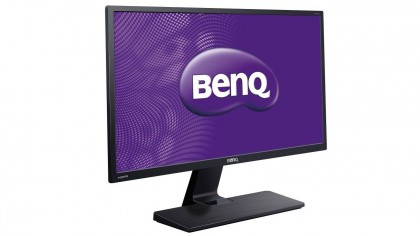
7. BenQ GW2270H
A good all-rounder with a modern look
Screen size: 21.5-inch | Aspect ratio: 16:9 | Resolution: 1,920 x 1,080 | Brightness: 250 cd/m2 | Response time: 5ms | Viewing angle: 178/178 | Contrast ratio: 20mM:1 (DFC) | Colour support: SRGB 91% | Weight: 7.5 pounds
BenQ offers the most affordable full HD monitor with an HDMI connector and it doesn't look that bad. The company embraced the Bauhaus "less is more" philosophy to deliver "a celebration of minimalist" lifestyle. Those are their words, not ours. It has some standout features though; one that reduces flicker (PWM technology) and a low blue light mode which may help with headaches and sleeping disorders. With 'just' a 1080p resolution, this isn't as fancy as other monitors on this list, but it allows you to edit your photos without having to spend loads on a new screen.
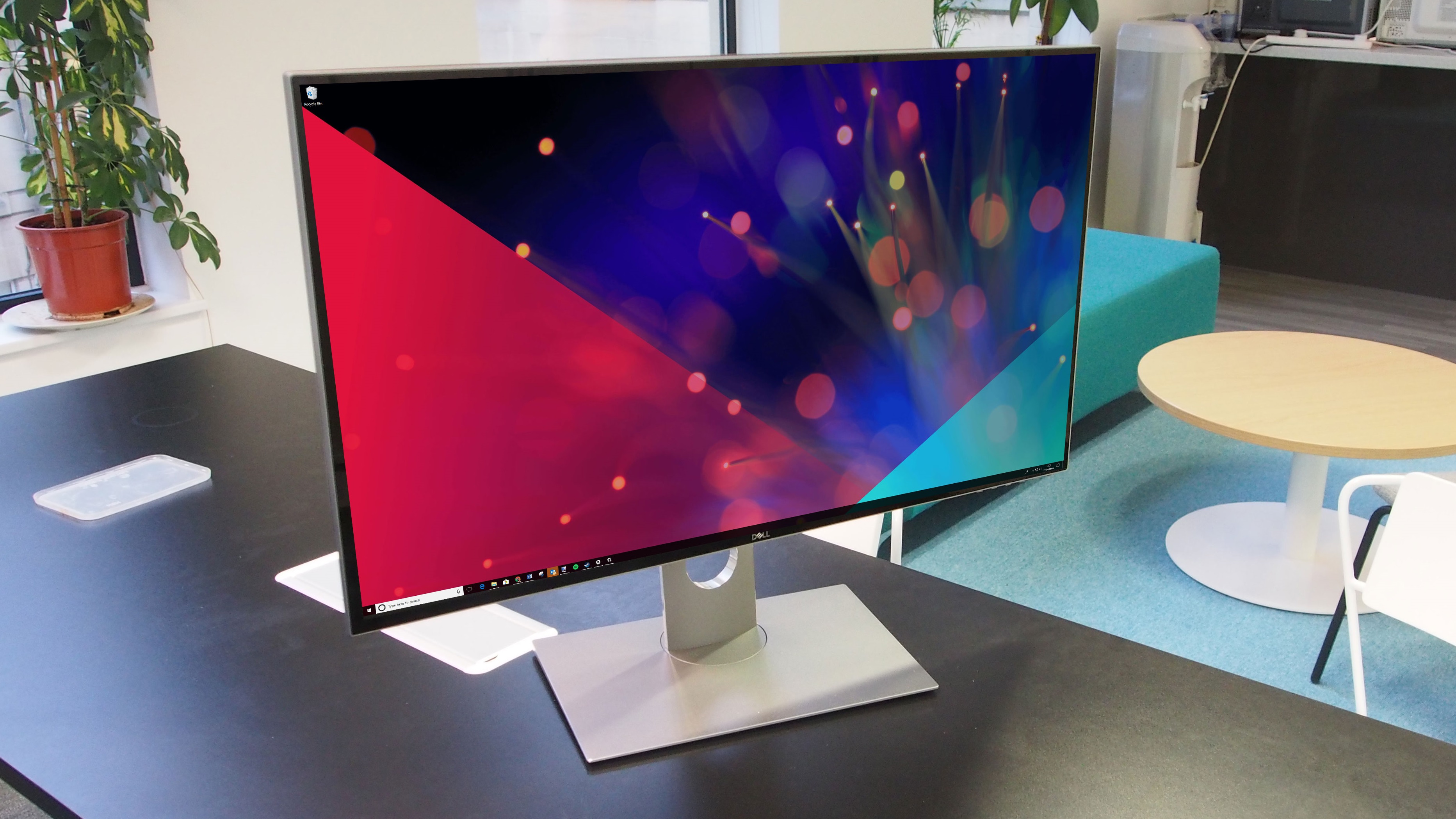
8. Dell UltraSharp UP3218K
Huge size and resolution makes this an outstanding monitor for photo editing
Screen size: 32-inch | Aspect ratio: 16:9 | Resolution: 7,680 x 4,320 | Brightness: 400 cd/m2 | Response time: 6ms | Viewing angle: 178/178 | Contrast ratio: 1300:1 | Colour support: 100% AdobeRGB, 100% sRGB, 100% Rec. 709, 98% DCI-P3 | Weight: 23.14 pounds
The Dell UltraSharp UP3218K is an absolutely amazing monitor for photo editing. It features a huge 32-inch screen and 8K resolution makes it perfect for photographers and video editors, and the amount of screen real estate that high resolution offers makes it an excellent productivity tool. The screen is professionally calibrated so it looks amazing out of the box, but be warned: this is a very expensive monitor. Depending on your needs, this will either be a brilliant buy, or an expensive folly.
10 things to look for in a monitor for photo editing

- Screen size is measured diagonally in inches, while resolution measures the number of pixels that make up the display. But a bigger monitor doesn't necessarily mean greater resolution; the 24-inch Eizo has a higher resolution than the 27-inch NEC, for example.
- A more useful measure of the 'crispness' of a display is pixel density, measured in pixels per inch (ppi). The NEC is 82ppi, the Eizo 94ppi, while Samsung and Dell weigh in at 109ppi.
- Monitors increasingly offer more than just a simple display for your computer, with built-in speakers, USB hubs, card readers and multiple inputs, such as HDMI, for use with a variety of devices.
- While true-to-life colour reproduction is very important in image editing, you may need to compromise to get all the features you want within budget.
- LED backlighting allows thinner displays, while IPS (or Samsung's PLS) allows for greater viewing angles.
- We'd always recommend using a digital interface like DVI or HDMI, but it depends on what your computer has. Do you want to plug in multiple devices? Make sure your new monitor has the same input as your computer has output!
- Several of these displays enable you to swivel the monitor from side to side and turn the screen 90 degrees into portrait mode.
- Most monitors are now capable of Full HD resolution (1920x1080) but more and more can do higher resolutions - many here are capable of 2560x1440, for example.
- With so many devices plugged into our computers these days, a USB hub really is something you'll wonder how you lived without.
- So many monitors - including several of these - are just plain ugly. Also see what people are saying about the button controls and menu system. Ensure it is usable.
from TechRadar - All the latest technology news https://ift.tt/2z3q4Fp